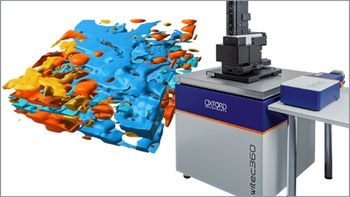
Limiting Metals in Baby Food - FDA's Action Plan and New Methodology
Tuesday March 8th 2022 at 2:00PM EDT and 11:00am PDT Join this webinar to understand changes to FDA methodology for the testing of heavy metal content in foods in accordance with proposed limits. Gain insight on the status of the FDA’s Closer to Zero initiative as well as the use of ICP-MS for the accurate, low-level detection of elements that can elicit a toxic response in children.
Register Free:
Event Overview:
Reports showing high levels of heavy metals, including lead, arsenic, cadmium, and mercury, in baby foods have raised concerns on the quality and safety of these foodstuffs. In order to reduce exposure, a component of the FDA’s Closer to Zero initiative focuses on best practices to reduce detection limits, such that low parts per billion (ppb) to parts per trillion (ppt) concentrations of toxic elements can be accurately quantified.
Join this webinar for an update on the status of this plan as well as the use of inductively coupled plasma–mass spectrometry (ICP-MS) for the accurate, low-level detection of elements that can elicit a toxic response in children.
Key Learning Objectives:
- Understand changes to FDA methodology for the testing of heavy metal content in foods in accordance with proposed limits
- Gain confidence in your data by learning about the best practices for elemental analysis in food matrices
- Learn about ways to enhance your analysis through some of the unique features available with ICP-MS hardware and software and how this translates to absolute confidence in your results
Who Should Attend:
- Lab managers and technicians aiming to optimize heavy metals analysis of foods
- Lab managers, chemists, and technicians involved in trace metals testing of foods
- Lab directors looking to increase throughput and accuracy of food sample testing
Speakers
Aaron Hineman
Inorganic Product Line Leader
PerkinElmer
Aaron Hineman is currently the Inorganic Product Line Leader for the Americas. Prior to this position he was a Senior Field Application Scientist with PerkinElmer. Aaron has a strong background in inorganic analytical chemistry including demonstrated hands-on expertise in state-of-the-art ICP-MS and ICP-OES instrumentation, hyphenated speciation using chromatography coupled to ICP-MS, working in 21 CFR Part 11 compliant laboratories for elemental impurity analysis, and various microwave, acid and fusion sample preparation techniques. Prior to joining PerkinElmer, he spent 10 years in environmental and geochemical laboratories developing analytical methodology and laboratory systems. His interests outside of work include snowboarding/skiing, obstacle races, biking, and running.
Kevin Kubachka, Ph.D.
Analytical Chemist
FDA Forensic Chemistry Center
In 2003, Dr. Kevin Kubachka received his B.S. degree in forensic chemistry from the Eastern Kentucky University. He then continued his education at the University of Cincinnati where he received his Ph.D. in chemistry (area of analytical chemistry) in 2007. Following graduate school, he was a federal post-doctoral researcher at the USEPA. After 16 months at the USEPA, he joined FDA’s Forensic Chemistry Center (FCC) as a chemist, where he has worked since September of 2008.
At the FCC, Dr. Kubachka has focused his efforts on elemental speciation and isotope ratio mass spectrometry (IRMS). His primary area of expertise is elemental analysis, with emphasis on elemental speciation of arsenic using liquid chromatography interfaced with inductively coupled plasma mass spectrometry (LC-ICP-MS). He has published several peer-reviewed journal articles and has given numerous invited presentations on these topics. Dr. Kubachka has been an instructor and course organizer for several FDA training courses.
Register Free:
Newsletter
Get essential updates on the latest spectroscopy technologies, regulatory standards, and best practices—subscribe today to Spectroscopy.




